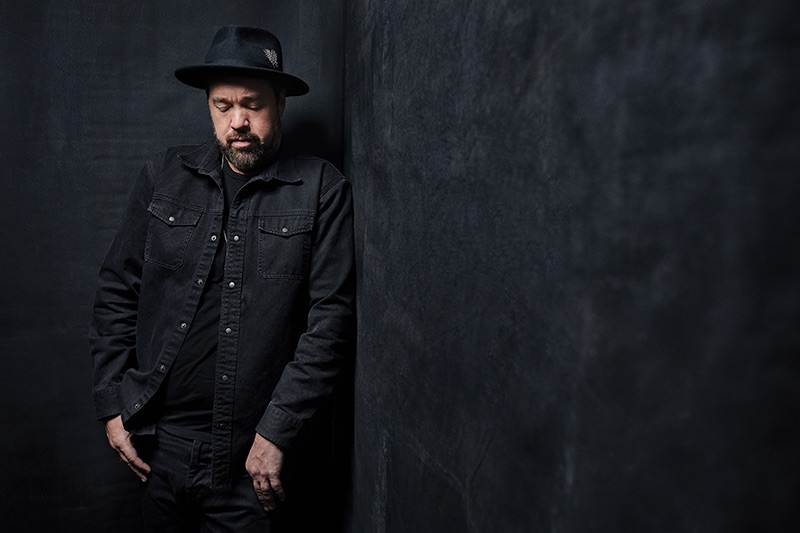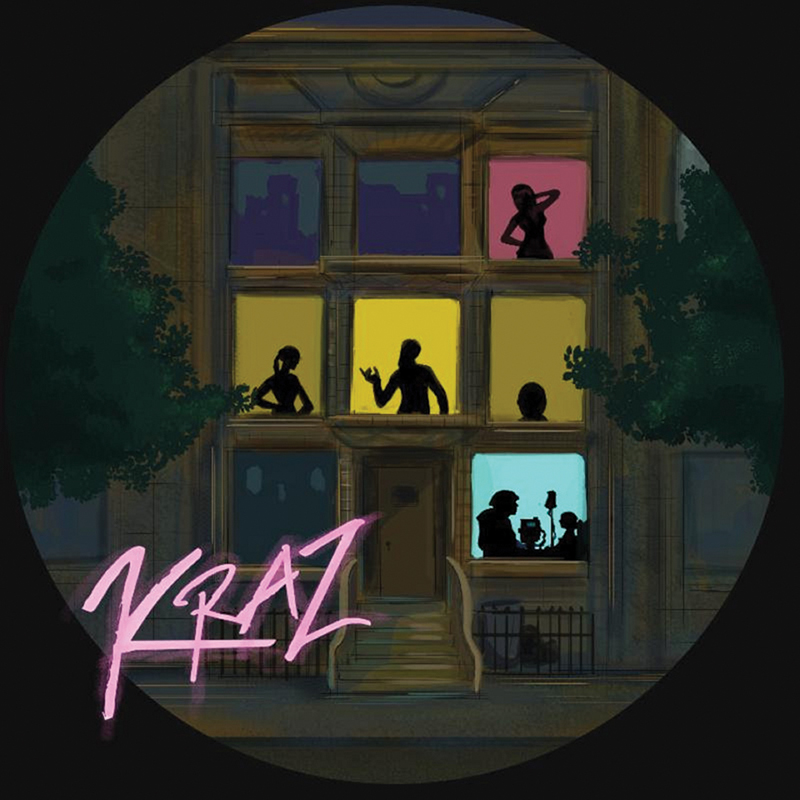Eric Krasno has been known as the soulful guitarist for both Soulive and Lettuce for going on two decades now. We recently had a chance to chat with him about a wide range of topics, from his earliest roots to his signature Ibanez guitar, and everything in between.
Where are you from?
I grew up in Connecticut till I was about 13 or 14 and kind of just moved around and then landed in Brooklyn. After college, I went to Berklee for a little while then transferred to Hampshire College in Massachusetts, but most of my life I lived in the suburbs in New York. I’ve been in NYC for 20 years and I just moved to LA in February.
I was about 13 when I picked up bass and then I started played guitar when I was about 14 or so. I had messed around and tinkered around before that, but that was before I had really seriously started playing.
Were you formally trained at a music school or have any teachers along the way?
Yeah, I studied with a guy named Yuseef Lateef in college and he was the one that really inspired me to become a musician, he was one of my heroes. He played with all the jazz guys: Dizzy Gillespie, Cannonball Adderly, he’s a legend. So, I got to work with him and I met the Lettuce guys back then at Berklee – started playing with those guys and then Soulive formed as I finished college and we started touring right as a I graduated from college.
Once you figured out you wanted to go pro, how many hours were you practicing? Were there any instructional DVDs that you were watching?
Man, I have no idea how many hours I practiced (laughs). There was no sort of thought or regiment to it, it was very much if I was inspired I would play. Instructional DVDs weren’t really a thing so much for me, but I got to be around people that played, definitely meeting the Lettuce guys helped, we all went to the 5 week summer program in college. It’s basically a summer program for high school kids to go and play music. So, meeting them and meeting other kids who were as passionate as I was, they were on such a high skill level and we all loved to hang and really just gravitated towards playing with each other. We wanted to explore this realm of improvising over funk music, like we all thought that was a fascinating path. Herbie Hancock had done it in the 1970s where he combined James Brown with jazz music. We were trying to chip away and make our own version of that. We had pulled inspiration from Aquarium Rescue Unit, Grateful Dead, even Phish.

You’ve mention John Scofield as an inspiration. You’ve played with him a number of times. How did you first link up with him and what have you learned from that relationship in terms of being a professional musician?
He saw Soulive perform and I was probably one of his biggest fans. It was right around the time he made a record called A Go Go, which to me was kind of in an iconic era, it was during the time he was doing stuff with Medeski Martin and Wood. He was touring around that time and saw us play at a festival and just really dug it and the next time we played, he came and sat in with us. The rest is history, we asked him to play on our record and he did and it’s become a relationship that has been ongoing for 20 years now. I talk to him quite a bit about creative stuff and business stuff, all of it. What I would say about him is that he’s not only an amazing player and great songwriter, but can reinvent himself with the times and he’s always pushed his sound forward. He doesn’t try to rest on his laurels, I’m definitely his biggest fan.
When you get an idea, are you like a Miles Davis where you actually write out notation to your songs? How do you communicate your musical ideas to your band members?
I definitely don’t write it out, per se. I usually try to record my demo — I’ve been into recording for a long time, I had my first little four track machine as a kid, so I always demoed my songs. I would play all the parts so that’s how I become a multi-instrumentalist, I guess you could say. Guitar and bass are my main thing, but I can play enough of the other things, like keys and drums to get my ideas down. That’s what led me to producing records, I’ve always been fascinated with recording and arrangement.
Let’s talk about Soulive for a minute. Your last LP Cinematics was released in 2018, but prior to that it had been a few years. Why the gap between releases?
Well, during that time I made a solo album and I toured for that extensively, also been producing records for Aaron Neville. I started a record label and produced London Souls and Nigel Hall, I produced tons of records in that time period. Soulive is still alive but definitely not our primary thing. We all love doing it, so it won’t die, but we all had to make room for all the other things were doing.
Cinematics had a very retro appeal to it, like the songs would fit perfectly in a ’60s spy film. Overall, your records have a vibe that sounds good on vinyl and even cassette. Do you prefer to release stuff on analog formats? What’s your take on being a retro-oriented act in a constantly changing music business?
Every record I make has got a different aesthetic. inematics we kinda went at it, basically tried to make a movie theme sounding record and it’s definitely dusty and vinyl. I don’t know if you heard my newest record that’s about to come out, but it’s got a whole different style and production. It’s under the name Kraz, it’s a concept album and there’s an animation to the entire thing. There are two singles out and you can get a feel for what it’s about.
You’ve performed with Questlove, Marcus King, Derek Trucks, just to name a few. One of my favorite performances was with Kofi Burbridge. He actually passed away earlier this year. Were you a friend of his? What kind of lessons did you learn from Kofi about being a touring musician?
Yeah, we were very close. Kofi was really about the music and he was in it for the love. He was the most humble kind of person and to be on his level of musicianship and have his demeanor and attitude was really inspiring for me because it made me want to be the best musician I could be and also show love for everybody. Cause a lot of the times, musicians with that skill level, talent and who have been on the road for so long are jaded, but everywhere he went, he always had his flute with him and was just ready to play. He was always inspiring himself, but spread that to all of us. So definitely one of my favorite musicians of all time is Kofi.
You guys have some mile long shows, you play for a good 2, 3, sometimes 4 hours. How do you condition yourself for such long performances?
You don’t really, when you get to the end, you pass out and then relax for three days. There’s a lot of prep as far as figuring out what songs we’re gonna do and who’s going to play what on what, but we’re kinda conditioned by doing it every year. The fact we’ve done it all these years prepares us for the next one.
Who are some of your favorite new artists?
I really like Nick Hakim, his latest album is called Green Twins. Right now, I’m working with an artist named Son Little, I love his records. Marcus King is great, I’ve gotten to work with him a lot. There’s quite a few…

Aren’t you a big fan of hip-hop? I know you worked with Talib Kweli on some things.
Yeah Kweli, Anderson Paak , I like Kendrick Lamar, J. Cole…
Do you collect guitars? If so, which ones are your favorite?
Yes, I have quite a few…50-ish. I have a lot; I have a signature guitar with Ibanez now.
Are you still doing your signature guitar with Ibanez?
Yes, it’s called the EKM-100 and the second EKM10T which has the tremolo bar on there, but it’s based on an AS-200 I had and we kind of modified that and tweaked it. We got different pickups and the neck is very different.
What other gear are you using, amp-wise and pedals?
Oh man, pretty much everything (laughs), I have so much shit – I have so much stuff in my studio, I’ve got Supro amps, 65 Super Reverb that I use a lot, a bunch of Mesa stuff, Fender Vibrolux, Fender Twin. I have so many freakin pedals its insane, I just collect stuff. I just found this pedal in Japan called Godvibe that’s basically it’s an old Univibe pedal and its modified and squeezed.
Let’s talk about your new projects. What do you currently have in the works?
Like I mentioned, I have a new concept album under the name Kraz entitled Telescope – it’s a concept album that takes place inside of a brownstone in Brooklyn, essentially the songs outline the story that tells you the lives of these characters in this building and how their lives intertwine. There’s a whole story told through songs and animation. We’ve been releasing one song at a time with animation and videos accompanying them. If you go to @kraz_music on Instagram, you can see the whole world we’ve been creating in there. I’m also producing various stuff with artists too. I’m in the studio daily working on something. I’m also touring with Phil Lesh and Friends.
Oh, that’s cool, have you run into John Mayer at all?
I’ve been playing John’s guitar a lot, the Silver Sky model. He sent me a couple of those.
Follow on Instagram @kraz_music and @erickrasno
photos by Danny Clinch
